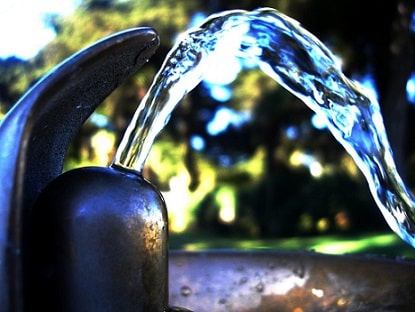 There are many organisations that regulate the quality of drinking water across the globe; they develop regulations and standards for drinking water in an attempt to regulate the quality of drinking water in all countries, to ensure that everyone has accessible, pure drinking water.
There are many organisations that regulate the quality of drinking water across the globe; they develop regulations and standards for drinking water in an attempt to regulate the quality of drinking water in all countries, to ensure that everyone has accessible, pure drinking water.
The World Health Organization (WHO), is a specialised agency of the U.N. for health, and was founded in 1948. WHO is the primary organisation that, together with various heads of state of member countries, sets the standards for the quality of drinking water.
Drinking Water Regulations & Standards
International standards for drinking water include the accessibility and quality of drinking water available to all. Various developed countries have their own organisations that set local standards. The WHO also publishes guidelines for countries that do not have a legislative or administrative framework for such standards.
Drinking water standards include a list of parametric values, and usually also specify the location, methods, and frequency that samples should be taken. Analytical methods and laboratory accreditation Analytical Quality Control (AQC) are also mentioned.
Some standards require the taking of an average, ascertaining whether standards exceed requirements; some give complex details regarding the statistical treatment of results.
10 Countries with the Best Tap Water
The Environmental Performance Index (EPI) rates nations according to environmental performance, including the quality of their tap water. According to this index, the top countries with the best quality drinking water are:
1. Switzerland supplies the best quality of drinking water; tap water in Switzerland is the same quality as that of bottled mineral water, and is about 500 times cheaper than bottled water.
2. Norway provides its consumers with pure, clean, delicious drinking water via special programmes that protect groundwater and other water systems in the country
3. Luxemburg uses 38 of its 71 natural springs to supply drinking water to its citizens, using ultrafiltration systems that make it the third best drinking water in the world
4. France comes in at number four, with the participation of the private sector, via lease contracts and special concessions, in maintaining the sanitation and supply of tap water
5. Austria relies on the Austrian Water Act to ensure that its supply of drinking water sourced from ground water or spring water remains high quality
6. Italy conducts regular testing on the quality of its drinking water to check the basis of hardness, dry solids at 180 degrees, pH levels, fluoride, chlorides, sodium, and nitrite.
7. The UK employs a high level of quality standards and regulations based on the EU drinking water directive as well as on advice of the World Health Organization to keep its drinking water at a high quality
8. Sweden has two water treatment plants situated in Norsborg and Lovo, which use the latest technology for the treatment of water, to supply quality drinking water to its citizens
9. Germany comes in at number nine, supplying quality drinking water to all thanks to high quality standards adhered to in its water treatment plants
10. New Zealand comes in at number 10, and supplies its citizens with clean, safe, great tasting drinking water
Millennium Development Goals
Millennium Development Goals (MDGs) are international goals that were set by the United Nations, and include eradication of extreme poverty and hunger; achievement of universal primary education; promotion of gender equality and empowerment of women; reduction of child mortality; improvement of maternal health; combating HIV/AIDS, malaria, and other diseases; ensuring environmental sustainability, and developing a global partnership for development.
All 189 United Nations member states at the time (2002), as well as 23 international organisations committed themselves to assisting in achieving these Millennium Development Goals by 2015.
The MDG that refers to water accessibility, sustainability and quality, is Target 7C, Halve, by 2015, the proportion of the population without sustainable access to safe drinking water and basic sanitation, Proportion of population with sustainable access to an improved water source, urban and rural, and Proportion of urban population with access to improved sanitation.
[Source: Wikipedia]
Sources:
IWA Water Wiki
The Richest
Living-Water supplies companies with water coolers in London and water dispensers. Get bottled water dispensers and mains fed water dispensers for your office.





